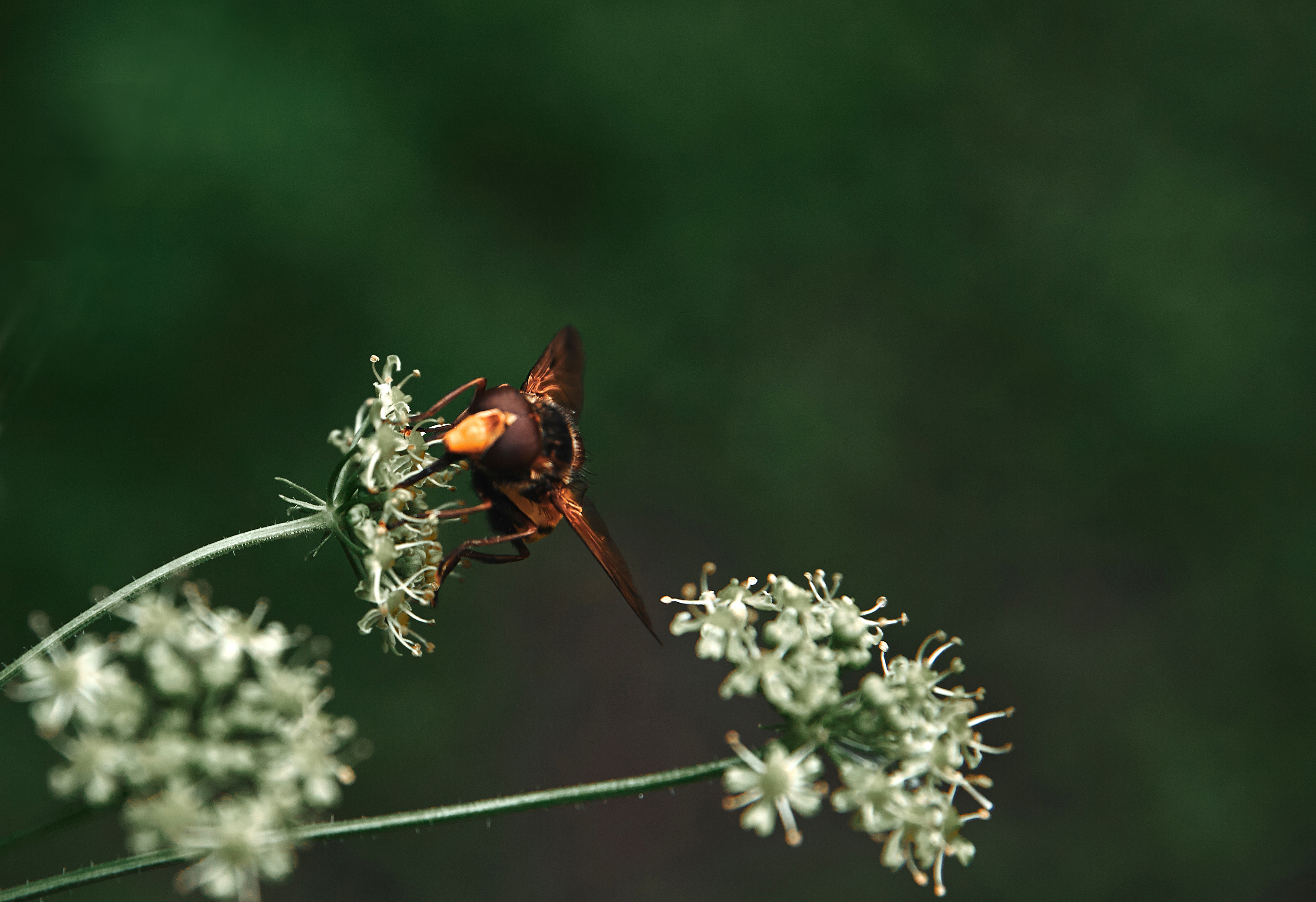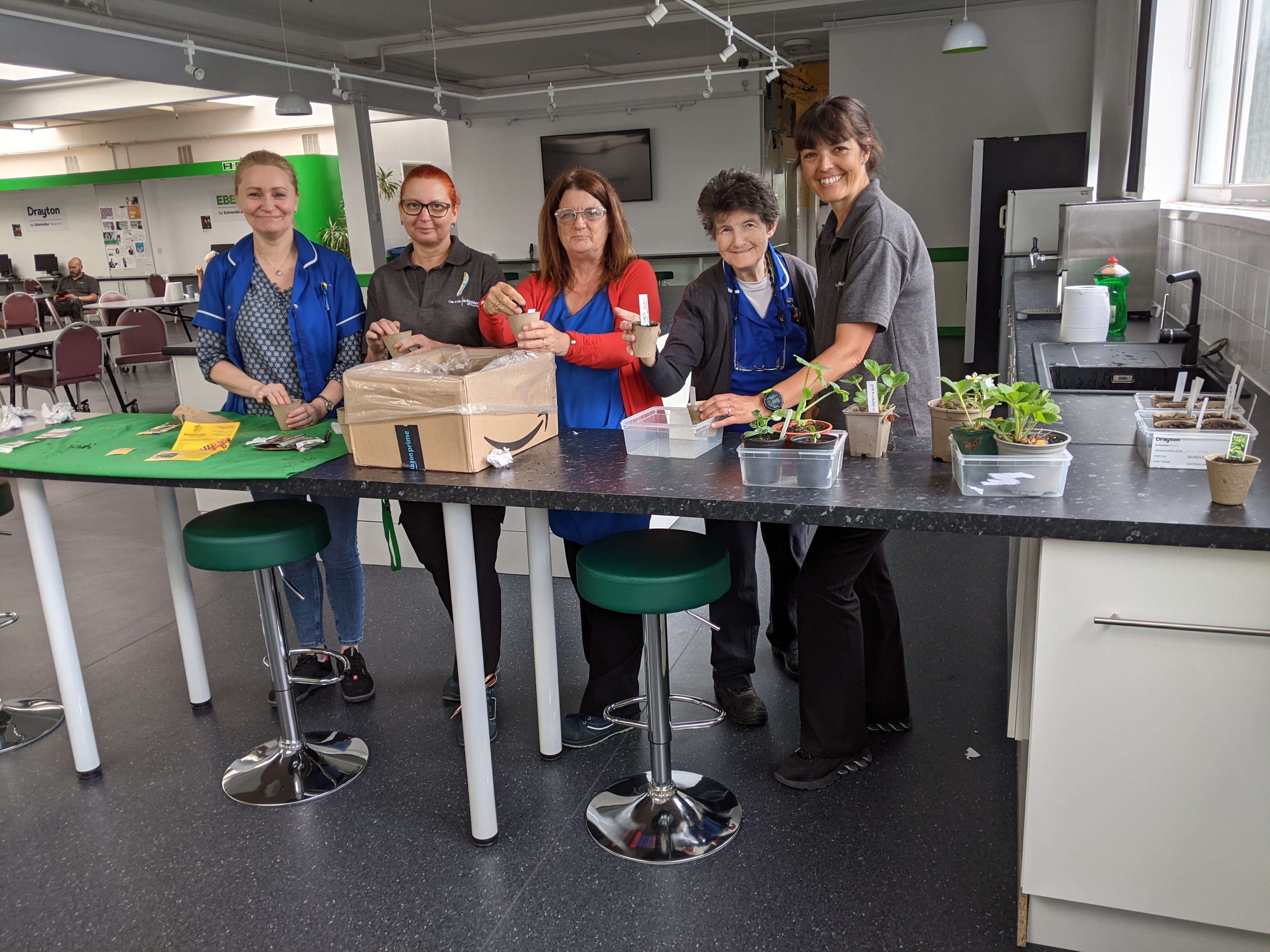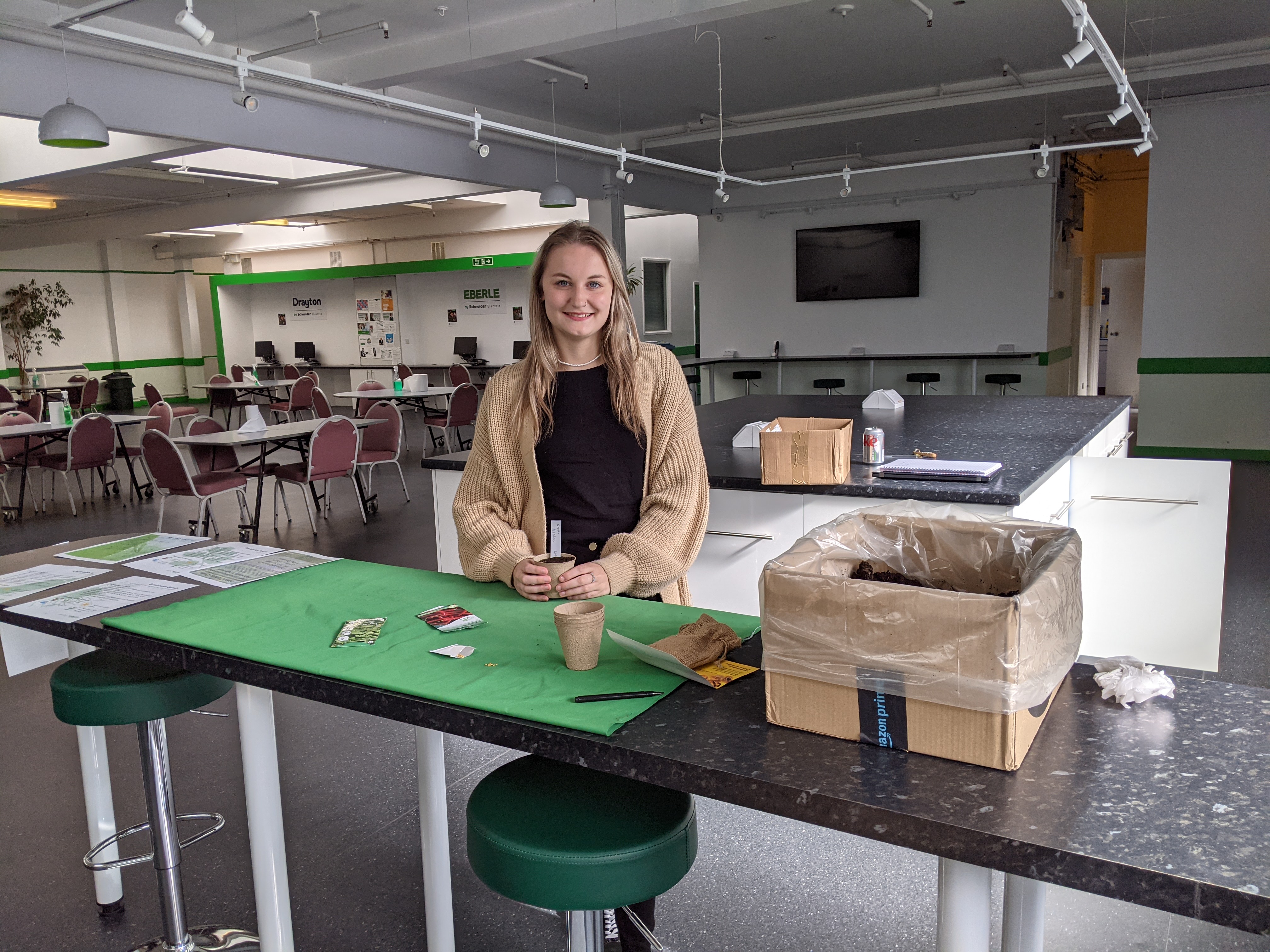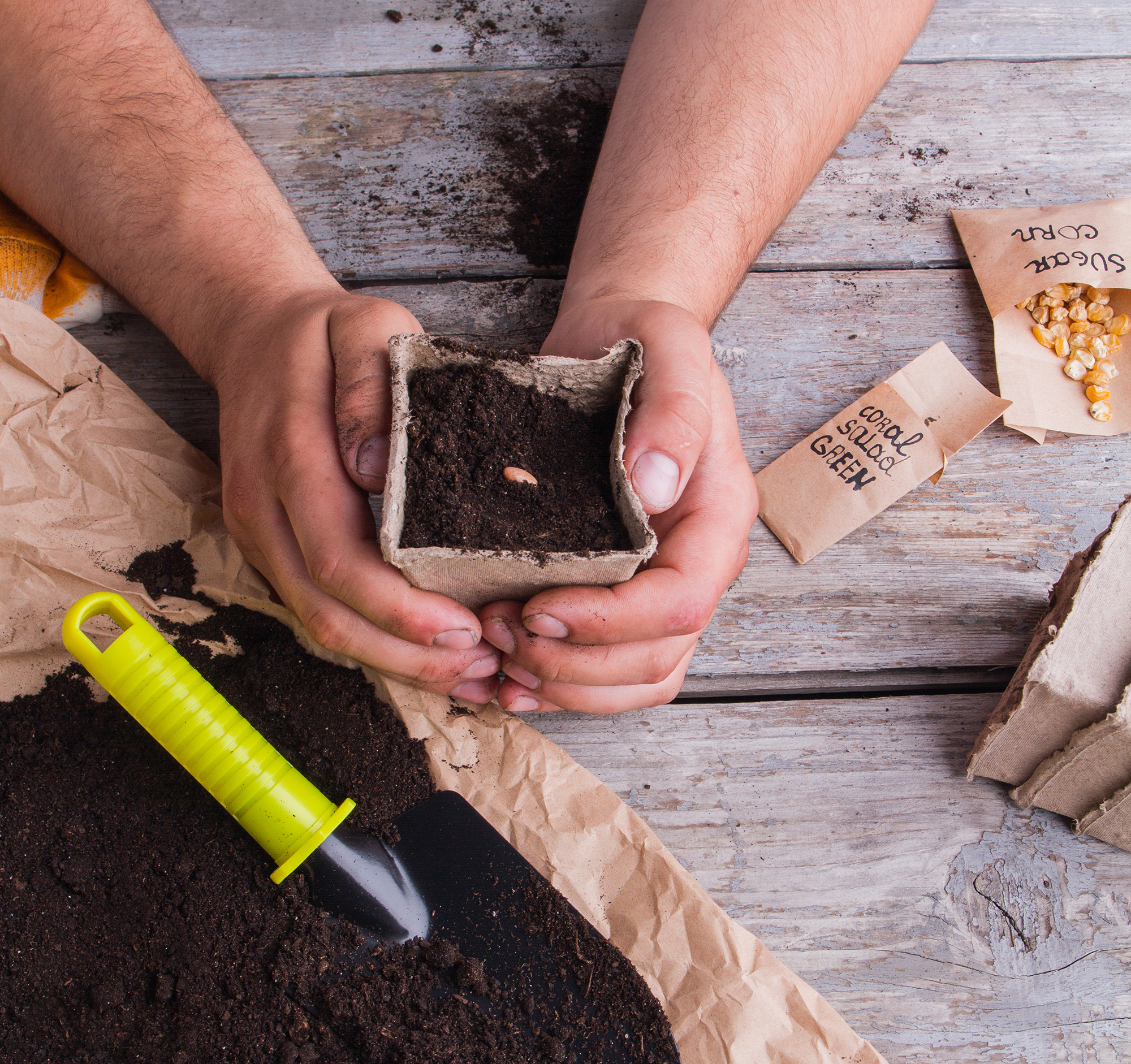It’s spring! Yet as we stare out of the window on a rainy Thursday afternoon we’re wondering if anyone’s told the British weather yet. But the reality is this springtime rain is extremely important for the growth of this year’s seeds, just coming to life as sunny hours and temperatures increase.
Biodiversity is a vital part of any sustainability journey, and that includes ours. As part of our holistic approach to sustainability, it’s not just about reducing our carbon emissions. By improving the biodiversity of our site and surrounding environments, we can do our bit to rebalance the climate’s atmospheric carbon.
Spring is so important for biodiversity because plants absorb and store carbon from the atmosphere. Bees and other pollinators help plants to reproduce and spread as well as being an important part of the food web. Looking after our pollinators is therefore a major weapon in the fight against climate change.


Drayton’s Environmental Survey – The results
In February 2022, we had an environmental survey conducted on our Plymouth site, assessing the different types of natural environment that surround our buildings and parking areas, as we hope to build on what we already have to maximise our site’s biodiversity.
Several positive outcomes of the survey have fuelled our desire to create positive impact using our site’s green spaces:
- ● A patch of woodland to the rear of the site could be of major value to nesting birds and would benefit from the planting of more native tree species.
- ● A grassy area that edges one of our parking zones could support a variety of flowering plants to benefit pollinators like bees and butterflies.
- ● Several locations on our site could host new hedgerows, great for supporting many different species including nesting birds and small mammals.
- ● An area we’ve cleared at the rear of our site on which we have plans to build an employee green space would support both an allotment and a number of fruit trees.
So what’s the plan?
Following the results of our environmental survey, we’re excited to be making a number of green and impactful additions to our site, several of which we hope to complete by the end of this year:
- 1. Planting of 6-7 additional native UK trees in our wooded area to support nesting birds.
- 2. Seeding of a wildflower rich meadow to support pollinators, following the removal of plant species that can negatively impact biodiversity.
- 3. Creation of log pile habitats and ‘bug hotels’ to support insect populations, vital to food webs and their wider ecosystems.
- 4. Creation of hedgerows rich in native plant species in various location across the site, to support a variety of animal species including nesting birds.
- 5. Creation of an allotment area in our designated employee garden development zone as well as the planting of a fruit tree orchard (including apple, pear, plum, damson and cherry), supporting local biodiversity and providing benefits to staff.
May - Staff seed planting events
Earlier this month, Schneider Electric sites across the UK hosted seed planting events every day for a full week, allowing employees to use the provided sustainable seed planting materials to plant various types of seeds to take home, nurture and plant either in their gardens or local environments.
We had a great turnout at our Plymouth site, and brilliant participation with some staff even bringing in some of their surplus seedlings like strawberry plants, to swap and donate to others.
It was a great chance for our green-fingered employees to get together, share tips, help others learn about the importance of biodiversity, and gain some new additions for their gardens.


When’s the best time to plant seeds in the UK?
Late March to late May is typically considered the best time to plant seeds for several reasons, mainly the risk of frost has all but gone and weather conditions are optimal, with sunnier days but still usually plenty of rain to encourage the growth of seedlings when put outside.

10 tips for sustainable seed planting at home
Inspired to plant some new seedlings? Whether you’re out to grow your own veg and eat more sustainably (plus you’ll be the envy of your neighbours), or sow flowering plants to make your garden a pollinator paradise, we hope our 10 tips will help you plant your seeds more sustainably this spring.
1. Be pot-icular with your planting
Go for natural, plastic-free and biodegradable materials, like pots made of coconut coir, cardboard, egg cartons and egg shells. Or re-use what you have, like plastic takeaway containers, yoghurt pots, newspaper and toilet roll tubes. Not only is it more sustainable, you’ll save money too. By using biodegradable pots you can bury the whole pot when a seedling is ready to plant, that’s time and effort saved too!
2. Don’t forget drainage
Whatever type of pots you use, remember to add drainage holes if there are none, to prevent seedlings becoming waterlogged.
3. Choose wisely
Do you know what’s suitable for your area? Do you want to grow your own veg or flowering plants to boost biodiversity? Is your area suited to your chosen seeds in terms of temperature, humidity and soil type? You can always ask your local garden centre for advice.
4. Plant native
By sowing species native to your area, you’re reducing the spread of invasive species that can damage local biodiversity.
5. Support local
When buying seeds, seedlings and materials, support your smaller, local nurseries where you can.
6. Protect our pollinators
You can still benefit from your seedlings and support pollinators, like planting fruit trees that blossom annually and encourage bees and butterflies.
7. Give peat a swerve
Peat is a vital part of natural ecosystems, but it’s very slow to form and we’re consuming it on an unsustainable scale, as harvesting UK peatlands is negatively affecting wildlife, reducing natural carbon storage, increasing flood risk and reducing water quality.
8. Avoid chemicals and pesticides
Keep your soils free of chemicals that can kill pollinators and disrupt local ecosystems. You can avoid damage to seedlings from pests like slugs and snails by sowing seeds and germinate them indoors, then transfer outside when large enough.
9. Ditch plastic seed labels
Instead try easy plastic-free alternatives like lolly sticks, reusable metal labels, or even old knives and spoons!
10. Make it a lesson in caring
If you have little ones in your family, why not get them involved? Seed panting’s a great practical activity to keep them occupied and helps foster an interest in nature and caring for the environment.

British Tomato Fortnight: 23rd May – 5th June
Who doesn’t love a nice juicy tomato? And being so easy to grow, take the chance to plant some last-minute tomato plants and enjoy the fruits of your labours (literally) in your salads and salsas this summer. Find out more at www.britishtomatoes.co.uk
National Children’s Gardening Week: 28th May – 5th June
In the theme of gardening and seed planting, why not get the children involved in this fun week? Plant seeds with them, go wildlife spotting in your own garden, and encourage them to care for what they love (that’s mainly getting messy!). Find out more at www.childrensgardeningweek.co.uk
World Environment Day: 5th June
This annual UN awareness day has been going for decades and even has its own anthem. It focuses on environmental concerns ranging from pollution to global warming and sustainable food production to protection of wildlife. Find out more and explore the interactive website.
Garden Wildlife Week: 6th June – 12th June
It’s not just wild spaces that are home to ecosystems, our gardens are too. We can all learn more about protecting and encouraging the wildlife in our own gardens at www.gardenwildlifeweek.com to boost the biodiversity of UK gardens.
National Growing for Wellbeing Week: 6th June – 12th June
Thought we couldn’t find any more gardening-related awareness days? Wrong. Approximately 1 in 4 people in the UK will experience mental ill health each year. There’s strong evidence highlighting the health benefits of gardening, including improved confidence, communication, concentration and ultimately self-belief. Find out more on the website.
Find out more about our sustainability journey as well as tips for living greener here on our blog, Wiser About Sustainability.
Related Reading
Drayton stockists near you
Are you an installer?
Check out Drayton Rewards+, our new and improved loyalty scheme that gives you more. Sign up free now to start earning points and access free training!
Sign up today

